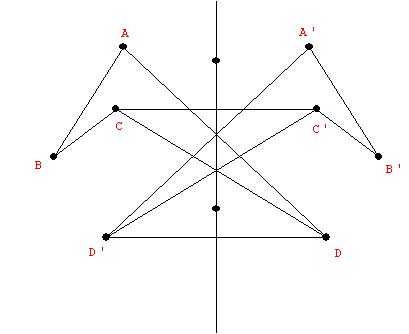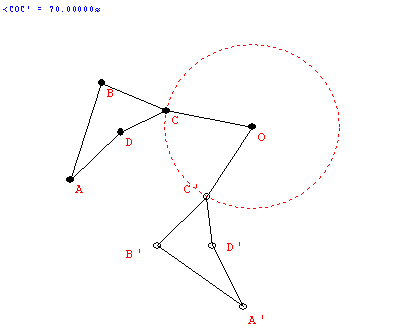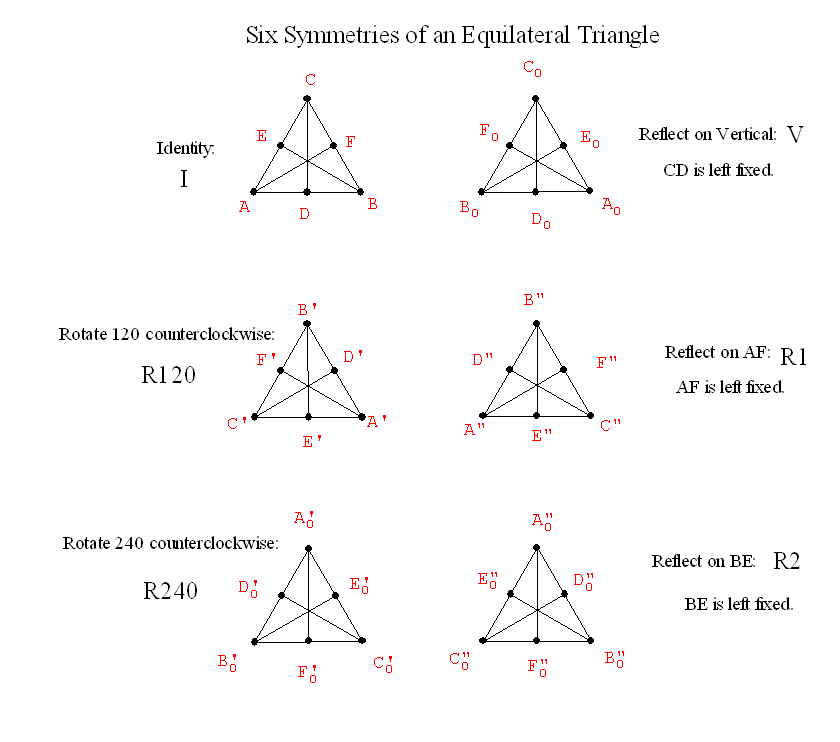Number of polygons
around a vertex |
Equation for angle sum = 360 |
Equivalent Arithmetic equation |
Solutions to the arithmetic equations. |
|
| 3: n , k, p |
180 - 360/n+180 - 360/k+180 - 360/p = 360 |
1/n+1/k+1/p =1/2 |
| 6 |
6 |
6 |
| 5 |
5 |
10 |
| 4 |
5 |
20 |
| 4 |
6 |
12 |
| 4 |
8 |
8 |
| 3 |
7 |
42 |
| 3 |
8 |
24 |
| 3 |
9 |
18 |
| 3 |
10 |
15 |
| 3 |
12 |
12 |
|
|
| 4: n, k, p, z |
180 - 360/n+180 - 360/k+180 - 360/p 180 - 360/z
= 360 |
1/n+1/k+1/p +1/z =2/2 =1 |
| 4 |
4 |
4 |
4 |
| 3 |
3 |
4 |
12 |
| 3 |
3 |
6 |
6 |
| 3 |
4 |
4 |
6 |
|
|
| 5: n, k, p, z, w |
180 - 360/n+180 - 360/k+180 - 360/p+180 - 360/z+180
- 360/w = 360 |
1/n+1/k+1/p +1/z+1/w =3/2 |
|
|


